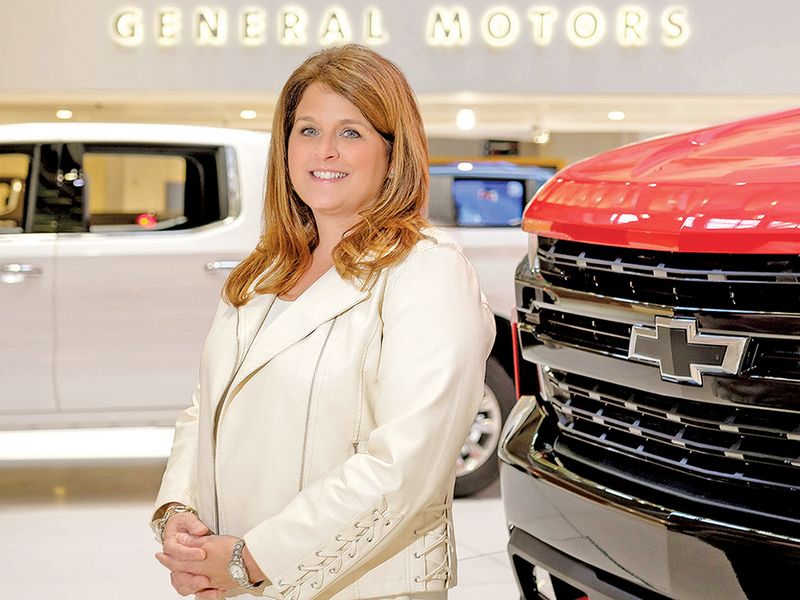
In the still-male-dominated auto industry, women often carefully navigate their approaches as leaders. Their strategies vary, but many say learning to strike a balance between assertive and collaborative is key.
Several of Automotive News’ 100 Leading Women described having low confidence early in their careers, often because they lacked experience or were the only women on their teams. Other honorees in the 2020 Leading Women class said they were more aggressive than they needed to be as they were getting started to ensure that their voices were heard.
The balance comes down to “listening to understand but not being run over,” said Janet Barnard, chief people officer at Cox Automotive. “We have to find ways to communicate differently than men do generally. I hate to have to give myself over to that, but I think that’s the reality.”
Women often won’t apply for a new position unless they believe they can check every box for skills laid out in a job description, said Cheri Alexander, professor of faculty management and organizations at the University of Michigan’s Ross School of Business. But men, she said, often will apply for jobs even when they don’t meet every qualification.
Among the undergraduates Alexander teaches, female students generally have lower confidence than their male classmates.
“As they age, their confidence will equal out. And in fact, as they get older, women become even more confident than the men,” Alexander said. “But early on, they’re not as confident to say, ‘I can wing it.’ ”
Juanita Powell Baranco, co-owner of Mercedes-Benz of Buckhead in Atlanta and dealer principal of Mercedes-Benz of Covington in Louisiana, told Automotive News that many women are reluctant to pursue nontraditional career paths because they are afraid of failing. “If I could wave a magic wand and do anything for women, it would be to give them the confidence to know that they can do it,” Baranco said. “It takes a few of us to get out there and set the trend.”
When Christine Sitek first entered the work force, her challenges often stemmed from a lack of confidence.
“I let an experience, a situation or another individual make me not believe in myself or shake my confidence, which either exacerbated that challenge or made it worse,” said Sitek, now executive director of global purchasing and supply chain at General Motors.
“It’s just time and experience, trial and error. I [remind myself] what my strengths are, what I can bring to a conversation or a problem or a project,” she said. When women are just starting their careers, “it can be an everyday battle depending on the situation that you’re in or the conversation that you’re in.”
Some women, however, dove into their careers assuming they’d have to work harder than the men at their companies for the same opportunities and for their voices to be heard. Eventually they found that their teams were often already listening.
“When you’re a hammer, everything is a nail, and sometimes that’s not the right tool. Sometimes I struggle to step back and maybe not be a hammer,” said Vickie Piner, global vice president of quality, e-systems, at Lear Corp.
Early in her career, Piner said she felt the need to be “ever-present.”
“Maybe I developed some of those skills of being a little bit of a hammer, making sure I was heard and recognized,” she said. But “it’s a different environment today. Now that that’s not needed, I need to school myself — these guys hear me.”
General Motors Chief Marketing Officer Deborah Wahl, often the only woman in the room early in her career, also described herself as a fighter at work. At one point, she recalled, a colleague asked why she thought she always had to win.
“That was a huge awareness aha moment for me,” Wahl said. She realized the approach should be “about working together and benefiting, asking for help in much better ways, which sounds like a basic. But when you’re a young achiever and you really want to go faster, that was a big learning for me. And once I adapted that and started to learn to ask for help, I was amazed at how much help came and how many things we could do.”
Lindsay VanHulle, Urvaksh Karkaria and Alexa St. John contributed to this report.